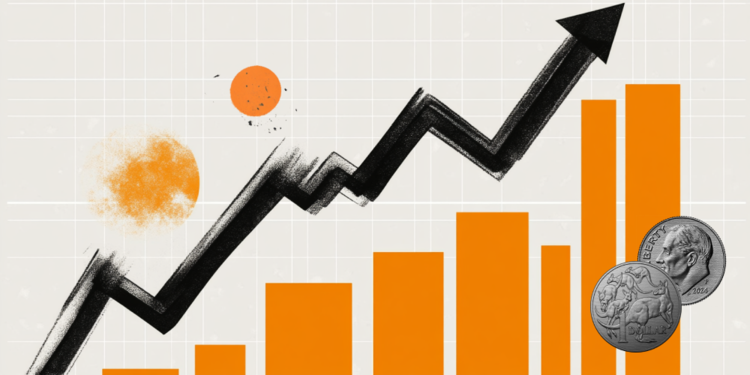- EUR/JPY gains ground near 163.10 in the early stages of the European session on Friday.
- German GDP growth figures contracted 0.3% quarter-on-quarter and 0.2% year-on-year in the fourth quarter.
- The verbal intervention of the Japanese authorities and the increase in geopolitical tensions in the Middle East could limit the fall of the Yen.
- Investors will be watching the German IFO survey for February and ECB member Isabel Schnabel's speech.
EUR/JPY extends its bullish trend near the psychological barrier of 163.00 during the early hours of the European session on Friday. The pair rose after the German GDP growth figure for the fourth quarter matched market estimates. Currently, the pair is trading around 163.11, with a gain of 0.15% on the day.
The latest data from Germany's Federal Statistical Office on Friday showed that German gross domestic product for the fourth quarter contracted 0.3% quarter-on-quarter and 0.2% year-on-year in the fourth quarter. Both figures coincided with market expectations.
On Thursday, the Eurozone Composite PMI for February exceeded consensus forecasts and stood at 48.9 points, compared to 47.9 in January. The improvement in the composite PMI was mainly due to the increase in the services PMI, which rose to 50.0 in February from 48.4 the previous month. The manufacturing PMI fell to 46.1 in February from 46.6 in January, worsening the forecast of 47.0. This report suggests that the Eurozone manufacturing sector remained in deep contraction territory in the first quarter of 2024.
The minutes of the January meeting of the European Central Bank (ECB) illustrate the change that is occurring in the ECB's assessment of inflation, but the very cautious and gradual change suggests that it is very unlikely rate cuts in spring. Instead, the ECB will want to wait for first quarter data to confirm the decline in inflationary pressure, a modest economic recovery and the lack of acceleration in wage growth to slightly reduce the current restrictive nature of monetary policy.
On the other hand, verbal intervention by the Japanese authorities could limit the fall of the Japanese yen (JPY). The Japanese Ministry of Finance and the governor of the Bank of Japan (BoJ) have warned that they are closely monitoring the exchange rate and would intervene in the market to prevent further weakening of the national currency if necessary. Furthermore, escalating geopolitical tensions in the Middle East could boost the safe-haven Yen and act as a headwind for the EUR/JPY cross.
Next, market participants will focus on the German IFO survey for February and the speech by the ECB's Isabel Schnabel, scheduled for Friday. Japan's Consumer Price Index (CPI) will be published next week.
Technical Levels
EUR/JPY
| Panorama | |
|---|---|
| Today's Latest Price | 163.05 |
| Today's Daily Change | 0.17 |
| Today's Daily Change % | 0.10 |
| Today's Daily Opening | 162.88 |
| Trends | |
|---|---|
| 20 Daily SMA | 160.78 |
| SMA of 50 Daily | 159.27 |
| SMA of 100 Daily | 159.52 |
| SMA of 200 Daily | 157.63 |
| Levels | |
|---|---|
| Previous Daily High | 163.47 |
| Previous Daily Low | 162.47 |
| Previous Weekly High | 161.96 |
| Previous Weekly Low | 160.38 |
| Previous Monthly High | 161.87 |
| Previous Monthly Low | 155.07 |
| Daily Fibonacci 38.2% | 163.09 |
| Daily Fibonacci 61.8% | 162.85 |
| Daily Pivot Point S1 | 162.41 |
| Daily Pivot Point S2 | 161.94 |
| Daily Pivot Point S3 | 161.41 |
| Daily Pivot Point R1 | 163.41 |
| Daily Pivot Point R2 | 163.94 |
| Daily Pivot Point R3 | 164.41 |
Source: Fx Street
I am Joshua Winder, a senior-level journalist and editor at World Stock Market. I specialize in covering news related to the stock market and economic trends. With more than 8 years of experience in this field, I have become an expert in financial reporting.







